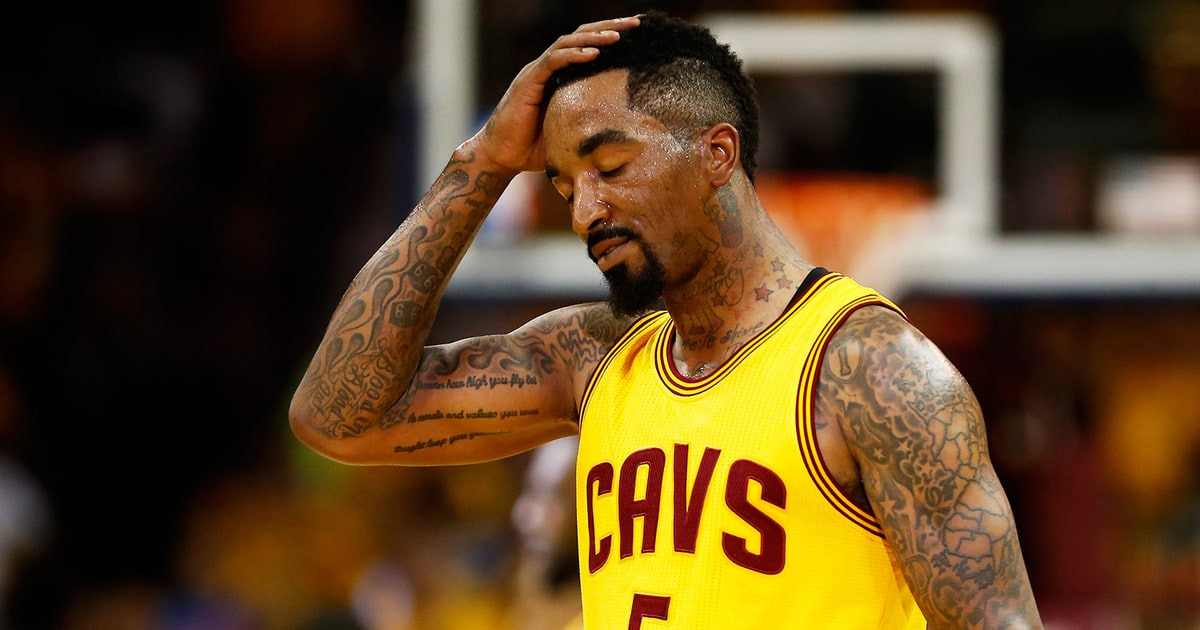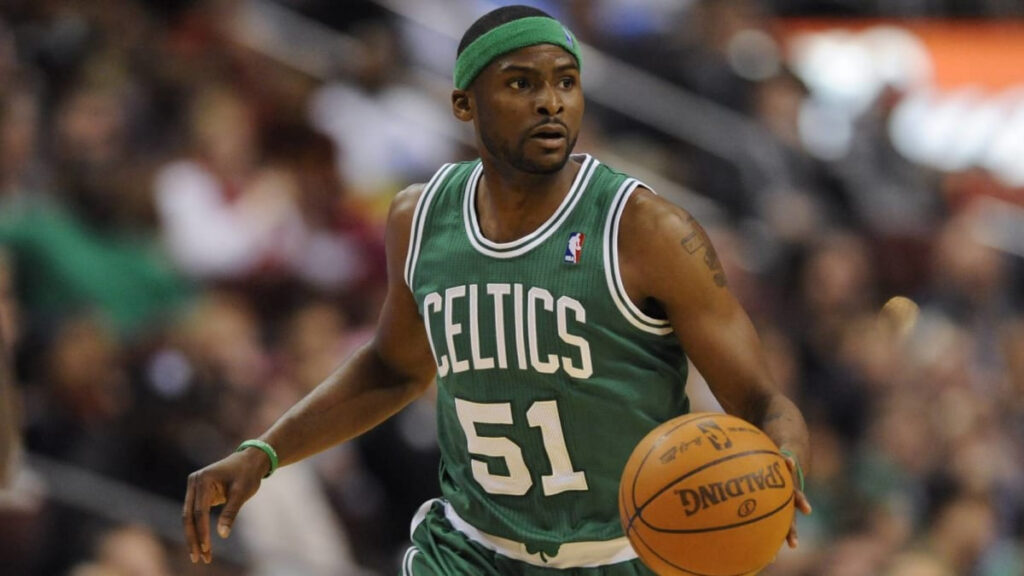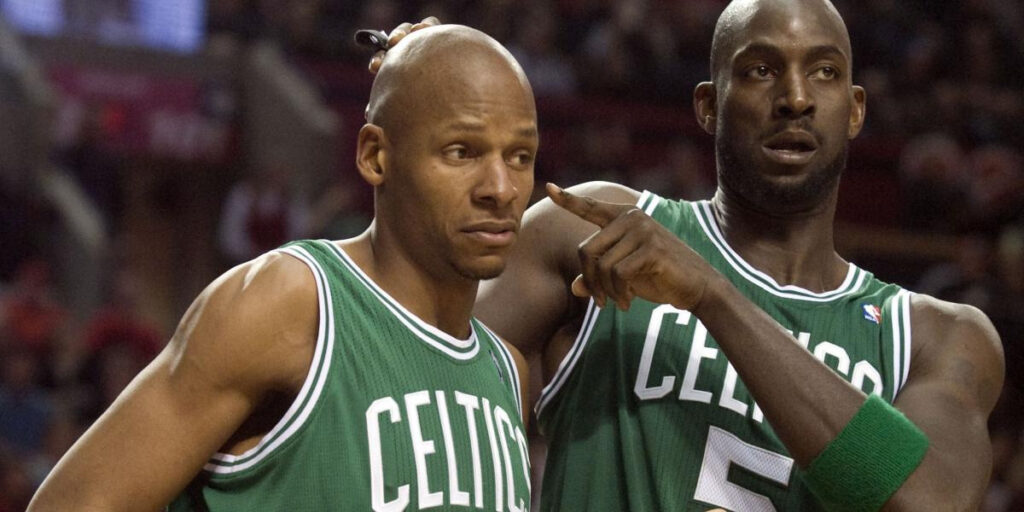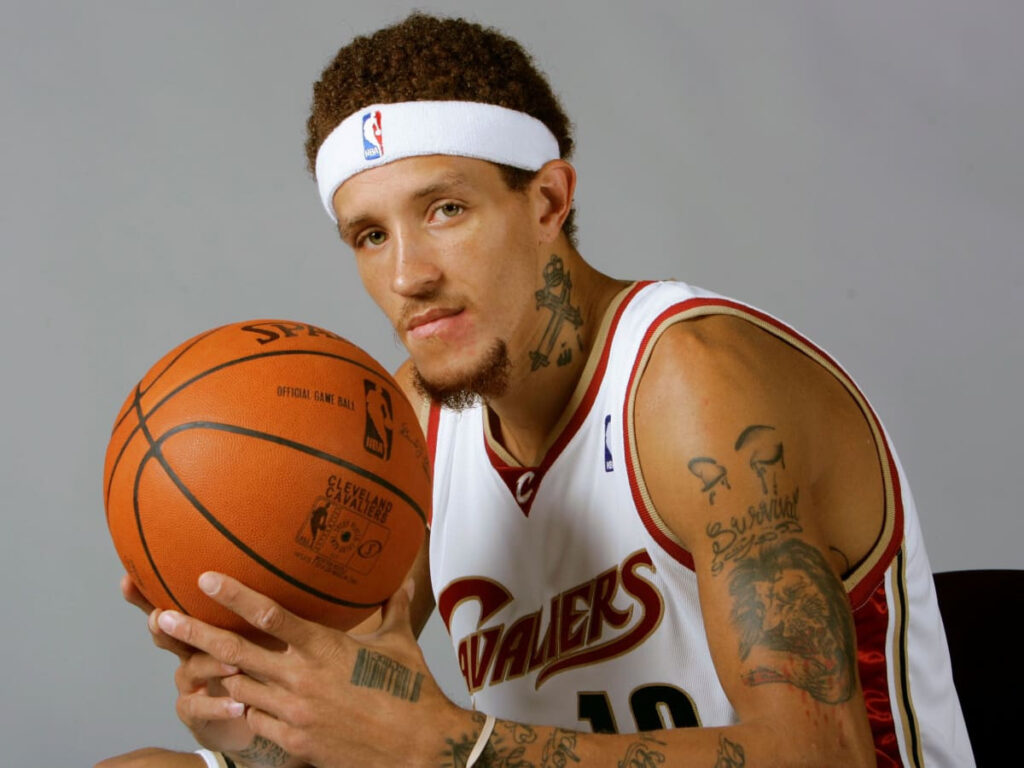
Hoops fans have recently found themselves plunged into the fascinating yet heartbreaking realities of mental health struggles in the NBA. Front and center are inspiring stories like DeMar DeRozan’s, Keyon Dooling’s journey triumphantly returning to the court after fighting back against depression, Kevin Love’s vulnerability in opening up about his mental state, and Metta World Peace’s crusade in utilizing his platform to raise awareness for mental health issues.
And then there’s Delonte West’s heartbreaking spiraling fall from a basketball star – it’s an industry that tragically still carries the stigma of being inadequate or ‘weak’ when seeking help. This article takes a closer look at mental health issues in the NBA, dealing with its negative perceptions, and the inspiring comeback stories four players have faced alongside the league’s employment of initiatives to promote their emotional well being.
Along these lines, Ray Allen, who has managed to cope with obsessive compulsive disorder, shines as an example to others. So how is the NBA going to further support mental health? Read on to discover more!
Mental Health in the NBA
Mental health has become increasingly important in the NBA, as players have begun to recognize the importance of mental wellness in achieving success on the court. Mental health issues, such as depression, bipolar disorder, panic attacks, and other serious mental illnesses, have become far more common in professional sports, including the NBA, and it is clear that players need to take care of their mental health in order to remain competitive.
The stigma surrounding mental health is also a major issue in the NBA, which is why the league has taken steps to destigmatize mental health and create a culture of openness and understanding around mental health issues. In addition, the NBA recently added mental health and wellness programs to its rookie transition program and junior elite program, showing just how serious the league is about mental health and wellness.
DeMar DeRozan’s Impact
Toronto Raptors star DeMar DeRozan made headlines in 2018 when he tweeted that he was struggling with depression. This tweet was groundbreaking as it sparked a wave of support and awareness for mental health issues in the NBA.
DeMar DeRozan’s tweet had a profound impact on the NBA, and it was the first time an NBA player had publicly acknowledged depression. This tweet resonated with many other players who had experienced similar struggles. It made them feel less alone and more understood. It also encouraged them to speak up and seek help for their own mental health challenges.
Ever since DeRozan spoke about his mental health struggles, his career has hit another level. Showing true strength, perseverance and determination.
— 𝕃𝕒𝕪𝕞𝕒𝕟 𝔸𝕟𝕒𝕝𝕪𝕤𝕥 NBA™🤔 (@LaymanAnalyst) April 21, 2022
The NBA took notice of DeMar DeRozan’s tweet and recognized the importance of mental health. They partnered with the Mental Health Association of America to create the series of NBA Cares Mental Health programs. These programs help to spread awareness, provide resources and education, and promote mental wellbeing among players.
DeMar DeRozan’s tweet also helped break down the stigma surrounding mental health in the NBA and encouraged players to be open and honest about their struggles. By speaking out, DeMar DeRozan helped to create a safe space for players to talk about their mental health and seek help when needed.
DeMar DeRozan’s tweet and the NBA’s response to it is a testament to the importance of mental well being in the NBA. It shows that the NBA is serious about tackling the stigma surrounding mental health and providing support for its players.
Kevin Love’s Story
By making his mental health journey public, Kevin Love has become a major advocate for mental health awareness. After experiencing an anxiety attack and depression during a game in November 2018, Love took a stand and spoke out about his struggles with mental health. Love’s story helped to shine a light on the fact that mental health issues can affect anyone, regardless of fame or success.
Thank you for everything you've done in Cleveland @kevinlove. For the on-the-court stuff obviously, but I will always look up to you for giving me the courage to talk about my mental health and see a therapist. We will miss you here! pic.twitter.com/HQRSlS7qh2
— Sir Yacht (@SirYacht_) February 16, 2023
Love then set up the Kevin Love Fund, a non-profit organization that works to reduce the stigma around mental health and encourage people to live their best lives. The organization provides resources for both mental and physical health, such as free counseling for those in need and support for those who are struggling with serious mental illness health issues. Since its launch, the organization has helped thousands of people around the world and has been a beacon of hope for many.
Keyon Dooling’s Journey
Keyon Dooling is a former NBA player who played 13 seasons with seven different teams. After retiring from the NBA, Dooling has been living life to the fullest, spending time with his family and working as a life coach. He has also been open about his mental health journey, which included a stint in a mental institution.
Dooling has become an advocate for mental health awareness in the NBA and beyond. He was recently hired by the NBA as a player wellness counselor and is the co-founder of the NBA’s partnership with the “Rookie Transition Program”. He has also spoken about his own personal struggles with mental health and sexual assault.

In an interview with Kevin Love, Dooling talked about how he used his platform to start conversations about mental health, and how he was able to find the support he needed to move forward. He also discussed the importance of understanding mental health and the challenges youth face in today’s society.
Dooling is a powerful example of how mental health awareness can be used to help people and break the stigma around it. His story is inspiring and shows that no matter what life throws our way, it is possible to find the support we need and make a difference in the world.
Metta World Peace’s Mission
Metta World Peace, formerly known as Ron Artest, is a retired NBA player who seeks to raise awareness and funds for mental health nonprofits. He has been a strong advocate for mental health awareness ever since his involvement in the Malice at the Palace incident in 2004.
He has since become an advocate for mental health, speaking out against the stigma surrounding mental illness. He has done this by appearing in public service announcements and using his personal story to encourage others to speak out about their own mental health struggles. Additionally, he has raised funds for mental health nonprofits, such as the National Alliance on Mental Illness (NAMI) and the National Suicide Prevention Lifeline.

In 2019, The Chicago School of Professional Psychology honored Metta World Peace for his mission to destigmatize mental health. He was presented with the Social Impact Award for his work in raising awareness of mental health issues in the NBA and beyond.
He is an example of how those in the public spotlight can use their platform to help others.
NBA’s Approach
In the past few years, the NBA has taken a stand in the public eye to address mental health issues among its players. The league launched the Mind Health initiative in 2018, making sure each team has a full-time licensed mental health professional. This is a major step forward in providing resources to players and staff.
The NBA also created a mental health wellness program that offers confidential support to anyone connected to the league, from athletes to coaches to team personnel. There is also a directory of mental health practitioners in each NBA city so that players can get access to treatment if needed.

Besides the direct support given to players, the NBA is also actively trying to break the stigma of mental health and mental illness in professional sports. The league has been vocal about encouraging more players to come forward and discuss their own experiences, and has even gone so far as to name an All-Star Game MVP award after Metta World Peace in recognition of his work in mental health awareness. The Players’ Tribune has also been a platform for NBA players to share their stories in their own words.
With more and more NBA players speaking out and becoming advocates for mental health, the NBA is taking a step in the right direction in addressing mental health issues among their elite athletes.
Ray Allen’s OCD
Ray Allen is a former professional basketball player, who is best known for his time with the Boston Celtics and Milwaukee Bucks. He has had a long and successful career, but few people know about his struggles with Obsessive Compulsive Disorder (OCD).
OCD is an anxiety disorder that has both physical and personal symptoms, and can severely affect a person’s life. In Allen’s case, it manifested itself in the form of an obsessive need for symmetry and order. He could spend hours making sure everything was perfectly placed and symmetrical, and would often be late to practice because of it.

Despite his struggles, Allen was able to channel his OCD into something positive and use it to enhance his performance on the court. He used his obsessive attention to detail to study the game and his opponents, giving him an edge over the competition. His experience with OCD and willingness to talk about it has also helped raise awareness and stigmatize anxiety disorders in the NBA.
Despite the struggle, Ray Allen was able to rise above his OCD and continue to fight to excel as a basketball player. He is now retired, but his dedication and resilience in the face of such a difficult disorder serve as an inspiration to many.
Delonte West’s Fall
Delonte West was an NBA player who began his career in 2004 and had a promising future in the league. However, his career took a rapid downturn due to mental health issues, drug use, weapons charges, and financial problems. He was eventually diagnosed with bipolar disorder and even attempted to take his own life.
West’s bipolar disorder was a major factor in his downfall, as it made it difficult for him to handle the rigors of the NBA. He often experienced extreme mood swings and was unable to focus on basketball, leading to a number of team suspensions. He also faced a number of legal issues, including weapons charges, that further derailed his career.

The impact of West’s bipolar disorder was not limited to his professional life. He also struggled with his personal life, leading to a strained relationship with his family. He was unable to maintain a stable home life and was often homeless. In addition, financial problems associated with his bipolar disorder led to the loss of several of his homes and vehicles.
The end of West’s career came in 2012 after he played in just two games for the Dallas Mavericks. He was released by the team due to personal issues and was unable to find another team to sign him. West’s career ended in 2013 after he failed to make the roster of the Texas Legends of the NBA development league.
Delonte West’s fall illustrates the devastating effects of mental health issues on an individual’s life and career. Despite his immense talent, West’s bipolar disorder created obstacles that he was unable to overcome. It’s a reminder of the importance of mental health in the NBA and a call to action to work to reduce the stigma associated with mental illness.
Summary
Mental health is an important subject for the NBA, and for professional athletes in general. The league’s mental health initiatives—such as introducing mental health programs and tips for rookie players—help to normalize conversations about mental health and make it okay to reach out and seek help. These efforts are being supported by individual players too, such as DeMar DeRozan and Kevin Love, who have become prominent advocates of mental health awareness. Their work is inspiring and has demonstrated that obstacles can be overcome with the right attitude and resources.
Other NBA players have made similar positive strides in regards to mental health. Metta World Peace has used his platform to raise awareness and funds for mental health-related causes, while Ray Allen has shown us all how to bounce back from adversity. Unfortunately, Delonte does not. West also serves as a cautionary tale and reminder of how quickly things can go wrong when mental health issues are ignored.
The larger issue here isn’t just that the NBA’s awareness-raising efforts around mental health are commendable, but that athletes—and the public at large—shouldn’t be discouraged from seeking help. Mental health is nothing to be ashamed of and addressing any issues or seeking treatment shouldn’t be seen as a sign of weakness. Every individual must take their own steps to address the issue, the NBA’s initiatives serve as guidance. Through creating a culture of acceptance and providing support, the NBA is taking a stand against the stigma that surrounds mental health.
Frequently Asked Questions
What percentage of NBA players have mental health issues?
It’s estimated that up to 35% of professional athletes, including those in the NBA, suffer from a mental health crisis. Considering there are roughly 450 players in the NBA at any given time, that means around 157 players could be facing such issues.
How is basketball a mental sport?
Basketball is more than just a physical activity – it’s a mental one too! Players must develop game strategies and think critically to mentally outwit their opponents on the court. This form of intense mental exercise helps keep minds sharp and encourages the development of analytical skills.
Who is the director of mental health in the NBA?
Kensa Gunter is the director of mental health for the NBA, establishing a relationship between players and staff members that emphasizes physical and mental wellness.
This role is important for the NBA, as it helps to ensure that players are in the best possible condition to perform on the court. It also helps to create a culture of wellness and support within the organization.
What is the NBA doing for mental health?
The NBA is focused on prioritizing mental health, with initiatives including education, resources, and advocating for increased mental health awareness. They are committed to helping all members of the basketball community find calm in their daily lives and finding ways to support those suffering from mental health issues.
This includes providing resources such as mental health professionals, mental health education, and mental health advocacy. They are also committed to creating a safe and supportive environment for all members of the basketball community, regardless of their mental state.





